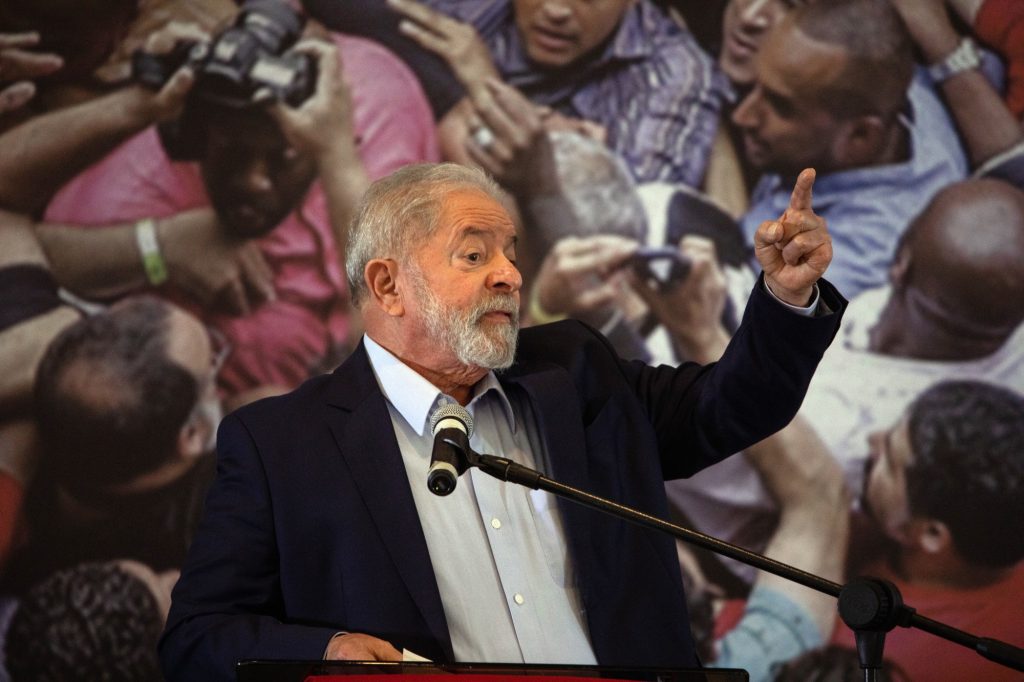At a time when the Far-right is on the rise in Europe capturing one government after another, the fourth largest democracy in the world – Brazil – has returned the Left to power with Luiz Inácio Lula da Silva winning the Presidential contest defeating the Far-right incumbent Jair Bolsonaro in the second voting October 30. Lula’s victory signifies that the “pink wave” of Leftist governments gets further strengthened in South America as Brazil joins Colombia, Chile, Peru, Honduras, Argentina and Mexico which have already put Left parties in the saddle.
Brazilian voters narrowly decided against a second term for Bolsonaro and rallied behind former President Lula who took 50.9 per cent of the vote against Bolsonaro’s 49.1 per cent.
Lula makes a spectacular comeback. He left office in 2010 despite having an 83 per cent approval rating. He also brought about an economic boom and a jump in living standards for poorer Brazilians during his two terms beginning in 2003. But in 2017, federal prosecutors implicated him in a huge corruption scheme and slapped a jail term on him on charges of accepting a bribe. He and Brazil’s Left stoutly denied the allegations and in 2021 Brazil’s Supreme Court threw out the charge overturning his conviction. It ruled that his right to a fair trial had been compromised. That cleared him to run for president again this year.
No wonder Lula celebrated his victory with a Twitter post deliberately using a term of Christian religion as his rival party had spread a canard against him during election campaign that he would close down churches and build “unisex” toilets in schools and colleges. He said he “experienced a resurrection in Brazilian politics” and went further with the religious analogy to declare that his opponents tried to “bury me alive, and now I am here to rule the country—in a very difficult situation.”
Bolsonaro, an avowed Right wing politician with a penchant for dictatorship, also tried to get Brazil’s military onside for a potential campaign to overturn the election. He had established deep ties between his government and the institution, appointing active generals to key ministries and Walter Souza Braga Netto, a reserve army general, as his 2022 running mate. In fact, the election was marred by an alleged coordinated attempt at voter suppression. Residents of towns around the country—predominantly in Lula strongholds in the north and northeast of the country—shared footage on social media of Brazil’s federal highway police manning road blocks, while newspapers reported an unusually high number of traffic stops on buses, delaying travel to polling stations. The highway police’s director general Silviney Vasquez had publicly endorsed Bolsonaro prompting the head of Brazil’s electoral court, Alexandre de Moraes at one stage to order him to end the road blocks.
The race was Brazil’s closest-run in three decades. Voters faced a stark ideological choice between Lula, a progressive Leftist, and Bolsonaro, a deeply conservative populist who promised to defend Christian values in Brazil. In the end, Bolsonaro has turned out to be the first incumbent to lose a re-election bid in Brazil since the 1990s.
Bolsonaro, a 67-year-old former army captain, has been in international news for the past four years for dismantling the protections for the Amazon rainforest which only helped illicit timber trade and played havoc with the climate. His irrational stand on tackling COVID-19 also brought untold miseries for Brazilians. He opposed vaccination as the pandemic raged and dismissed the cause of once in a century catastrophe as a “flu”. He incurred the displeasure of the people by effecting a wide-ranging relaxation of gun laws, expanding police powers and launching a crusade against gender ideology and coloured people. This put him in the same bracket with Far-right and intolerant politicians, including former US President Donald Trump who even appealed to Brazilians to vote for him.
Lula may have to tread cautiously during his presidency. Bolsonaro is likely to try and block him at every step as he told his supporters he would not accept his defeat easily. As in the case of the USA, Brazil has also become sharply polarised between Rightist and Left-democratic forces. His success in governance would be a great boost to Left politics as Brazil is the largest Latin American country.
